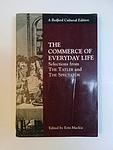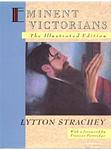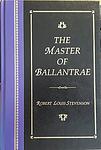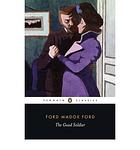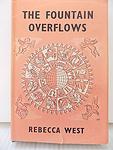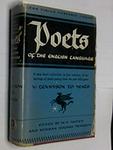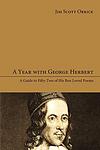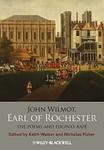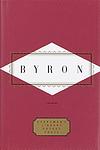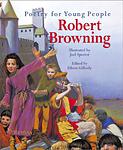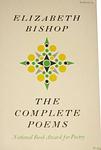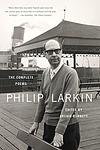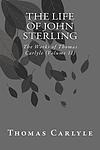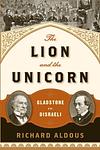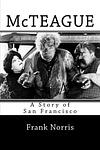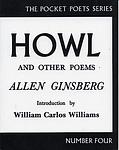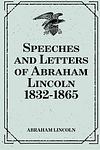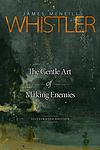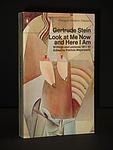Best Books (Fiction, Prose) : Experts Choose Their Favourites
This is one of the 286 lists we use to generate our main The Greatest Books list.
-
Essays by Francis Bacon
This collection is a seminal work of English literature, comprising a series of essays that delve into various subjects, ranging from politics and religion to love and truth. Written in the early 17th century, the essays are celebrated for their concise wisdom, rhetorical brilliance, and the author's deep insights into human nature and the complexities of life. The author, a philosopher, statesman, and scientist, employs a didactic style, offering practical advice and reflections on morality and ethics, which have remained relevant through the ages. The work is not only a reflection of the author's vast intellect and observational prowess but also serves as a valuable philosophical guide, illuminating the human condition and the societal norms of his time.
-
The Compleat Angler by Izaak Walton
This classic piece of literature is a detailed guide to the art and philosophy of fishing, blending practical advice on angling with musings on the beauty of nature and the rhythm of the water. Written in a dialogue format, it presents an in-depth exploration of the techniques for catching and enjoying various freshwater fish, alongside poetic discourses on the joys of the pastoral life. The book serves as both a timeless manual for the fishing enthusiast and a reflective ode to the serene pleasures of the natural world, celebrating the simple harmony found in the pastoral lifestyle and the meditative sport of fishing.
-
Selections From The Tatler And The Spectator by Joseph Addison, Richard Steele
This collection brings together a curated selection of essays from two pioneering eighteenth-century periodicals, "The Tatler" and "The Spectator." Conceived and written by Joseph Addison and Richard Steele, these essays offer insightful, witty, and often moralistic observations on society, manners, and literature of their time. Through a blend of satire, criticism, and instruction, the authors aimed to both entertain and edify their readers, promoting virtues such as charity, friendship, and honesty. Their work not only reflects the intellectual and cultural milieu of early 1700s England but also significantly contributed to the development of English prose and the periodical essay as a literary form.
-
The Natural History and Antiquities of Selborne by Gilbert White
"The Natural History and Antiquities of Selborne" is an exploration of the natural world in the English village of Selborne. The author, through a series of letters, provides detailed observations and insights into the flora, fauna, weather and geology of the area. The book also sheds light on the history and antiquities of the village, offering a comprehensive view of Selborne during the 18th century.
-
Reflections on the Revolution in France by Edmund Burke
This book is a political pamphlet written in the 18th century, where the author criticizes the French Revolution, arguing that it has gone too far in its quest for radical change. He asserts that the revolutionaries, in their rejection of tradition and their embrace of abstract notions of liberty and equality, have overlooked the complexities of real social and political life. The author advocates for gradual, prudent reform rather than sudden, violent change and emphasizes the importance of tradition and inherited institutions.
-
The Life of Charlotte Brontë by Elizabeth Gaskell
This biography provides an intimate look into the life of renowned author Charlotte Brontë. It covers her early years growing up in a Yorkshire parsonage, her struggles with poverty and the tragic deaths of her siblings, her development as a writer, and her eventual success. The book also delves into Brontë's relationships, particularly her close bond with her sisters, and her unrequited love for her married professor. The narrative is both a tribute to Brontë's resilience and talent, and a poignant portrayal of the hardships faced by women in the 19th century.
-
Studies In The History Of The Renaissance by Walter Pater
This book is a seminal work of criticism that explores the art, literature, and culture of the Renaissance period. It delves into the aesthetic and philosophical spirit of the era, examining the unique qualities that define Renaissance art and thought. The author's rich prose and contemplative approach emphasize the importance of beauty and the sensory experiences of life, advocating for an appreciation of art as an end in itself. Through a series of essays, the work reflects on the works of various Renaissance figures and the enduring impact of this period on the modern consciousness, ultimately encouraging readers to seek out intense experiences and to cherish the transient beauty in the world around them.
-
Eminent Victorians by Lytton Strachey
"Eminent Victorians" is a biographical work that profiles four influential figures from the Victorian era. The book provides an in-depth look into the lives of Cardinal Manning, Florence Nightingale, Thomas Arnold, and General Gordon, exploring their respective contributions to British society during the 19th century. Through these portraits, the book offers a critical and often satirical analysis of Victorian values, institutions, and moral attitudes, challenging the idealized narrative of the era.
-
The Englishwoman's Diary: An Anthology by Harriet Blodgett
This anthology is a curated collection of diary entries penned by English women over several centuries, offering a unique and intimate glimpse into the private lives, thoughts, and experiences of women from various walks of life. Through these personal writings, readers are transported across different periods of history, witnessing the evolution of women's roles, societal expectations, and personal aspirations. The editor has meticulously selected entries that not only highlight the rich inner lives of these women but also reflect the broader historical and cultural shifts of their times, making it a compelling read for anyone interested in women's history, diary literature, or the social history of England.
-
The Oxford Book Of Letters by Frank Kermode, Anita Kermode
This anthology is a comprehensive collection of letters spanning several centuries, curated to provide readers with a unique glimpse into the personal lives, historical events, and cultural contexts of various periods. The letters, selected for their literary merit and historical significance, offer intimate insights into the thoughts, emotions, and personalities of both renowned figures and ordinary individuals. Through these correspondences, the book not only chronicles the evolution of letter writing as an art form but also serves as a vivid tapestry of human experience, reflecting the diverse ways in which people have communicated their ideas, feelings, and experiences across time.
-
Oroonoko by Aphra Behn
The novel tells the story of an African prince, Oroonoko, who is tricked into slavery by European traders. Despite his noble bearing and personal courage, he is shipped to a plantation in Surinam where he leads a slave revolt. The book explores themes of colonialism, slavery, and the juxtaposition of civilization and barbarity. The protagonist's tragic end is a powerful indictment of European barbarity and hypocrisy.
-
Robinson Crusoe by Daniel Defoe
The book is a classic adventure novel about a man who spends 28 years on a remote tropical island near Trinidad, encountering cannibals, captives, and mutineers before being rescued. The story is noted for its realistic portrayal of the protagonist's physical and psychological development and for its detailed depiction of his attempts to create a life for himself in the wilderness. The novel has been interpreted as an allegory for the development of civilization, as well as a critique of European colonialism.
-
Gulliver's Travels by Jonathan Swift
This classic satire follows the travels of a surgeon and sea captain who embarks on a series of extraordinary voyages. The protagonist first finds himself shipwrecked on an island inhabited by tiny people, later discovers a land of giants, then encounters a society of intelligent horses, and finally lands on a floating island of scientists. Through these bizarre adventures, the novel explores themes of human nature, morality, and society, offering a scathing critique of European culture and the human condition.
-
Pamela by Samuel Richardson
"Pamela" is a novel that tells the story of a 15-year-old maidservant named Pamela whose employer, Mr. B, makes unwanted advances towards her after the death of his mother. Pamela is determined to protect her virtue and repeatedly rejects his advances. This leads to a series of events, including her attempted escape, kidnapping and imprisonment. Ultimately, impressed by her virtue and integrity, Mr. B reforms and proposes marriage to her, elevating her to a higher social status. The novel is a pioneering work in the genre of the novel and is noted for its detailed psychological insight into the characters.
-
Tom Jones by Henry Fielding
This classic novel tells the story of Tom Jones, a charming and good-hearted but impulsive young man, who is expelled from his adoptive family home due to his wild behavior and love for the beautiful Sophia Western. His journey through 18th-century England is filled with adventures, misadventures, and a colorful cast of characters, as he struggles with his identity and seeks redemption. The narrative explores themes of class, virtue, and morality, and is known for its humor, social satire, and vivid characterization.
-
The Expedition of Humphry Clinker by Tobias Smollett
This novel is a humorous epistolary narrative, told through a series of letters, that follows the adventures of the Bramble family as they travel throughout England and Scotland. The family's travels are filled with a variety of comical incidents, and their encounters with different people and places provide a satirical commentary on 18th century British society. The novel also explores themes of class, romance, and the contrast between city and country life.
-
The Vicar of Wakefield by Oliver Goldsmith
"The Vicar of Wakefield" follows the life of Dr. Primrose, a vicar living happily with his wife and six children in an affluent English parish. However, their lives take a drastic turn when they lose their fortune and are forced to move to a new, more modest parish. Despite facing numerous hardships, including the imprisonment of Dr. Primrose and the abduction of his daughter, the family remains resilient, relying on their faith and love for each other to overcome adversity. The story is a classic portrayal of family values, resilience, and the triumph of virtue over vice.
-
Tristram Shandy by Laurence Sterne
The novel is a humorous, rambling narrative that chronicles the life of Tristram Shandy. The story is filled with digressions, anecdotes, and eccentric characters, as Tristram often interrupts his own tale to interject commentary or to recount stories from his family's past. Despite the seemingly haphazard structure, the novel is a clever exploration of narrative form and a satirical critique of traditional biographies and novels.
-
The Castle of Otranto: A Gothic Story by Horace Walpole
"The Castle of Otranto: A Gothic Story" is a novel set in a medieval Italian castle and is considered the first gothic novel. The story revolves around the tyrannical Prince Manfred, who is determined to secure his family's reign in Otranto, despite the fact that his sickly son is killed by a giant helmet on his wedding day. The novel is filled with supernatural elements, including moving portraits, a bleeding statue, and a ghostly knight, as Manfred desperately tries to marry his late son's bride, leading to a series of tragic events. The novel is known for its exploration of the conflict between medieval and renaissance values, and its influence on the gothic literature genre.
-
Emma by Jane Austen
The novel revolves around Emma, a well-meaning but disaster-prone matchmaker, who ignores her own romantic feelings while setting out to find a suitor for her friend Harriet. Her efforts cause more problems than solutions as she leaves a trail of mishaps behind her. As her plans go awry, Emma realizes that she herself may be the one in love. The book is a classic exploration of social manners, love, and marriage in 19th-century England.
-
The Private Memoirs and Confessions of a Justified Sinner by James Hogg
Set in 18th century Scotland, the novel explores the psychological downfall of a deeply religious man who believes he is predestined for salvation and thus justified in committing a series of murders. He is driven to this path of self-destruction by a mysterious stranger who may be either a devilish tempter or a manifestation of his own deranged mind. The book serves as a critique of religious fanaticism and a chilling exploration of the dark side of human nature.
-
A Christmas Carol by Charles Dickens
This classic tale follows a miserly old man named Ebenezer Scrooge who despises Christmas and all forms of happiness. On Christmas Eve, he is visited by the ghost of his former business partner and three spirits representing Christmases Past, Present, and Yet to Come. These apparitions take him on a journey that forces him to confront his selfish ways, leading him to a transformation where he becomes a kinder and more generous person, embodying the true spirit of Christmas.
-
Vanity Fair by William Makepeace Thackeray
This classic novel follows the lives of two contrasting women, the cunning and ruthless Becky Sharp and the sweet and naive Amelia Sedley, against the backdrop of English society during the Napoleonic Wars. The book is a satirical exploration of the obsession with wealth, status, and social climbing, and the moral bankruptcy that can result from such pursuits. The narrative weaves an intricate tale of love, betrayal, and redemption, exposing the vanity and hypocrisy of high society.
-
Wuthering Heights by Emily Brontë
This classic novel is a tale of love, revenge and social class set in the Yorkshire moors. It revolves around the intense, complex relationship between Catherine Earnshaw and Heathcliff, an orphan adopted by Catherine's father. Despite their deep affection for each other, Catherine marries Edgar Linton, a wealthy neighbor, leading Heathcliff to seek revenge on the two families. The story unfolds over two generations, reflecting the consequences of their choices and the destructive power of obsessive love.
-
Bleak House by Charles Dickens
"Bleak House" is a complex narrative that critiques the British judiciary system through a long-running legal case known as Jarndyce and Jarndyce. The story follows the lives of numerous characters, including the kind-hearted Esther Summerson, her friends Richard and Ada, and their guardian, Mr. Jarndyce, who are all caught in the web of a legal dispute over an inheritance. The novel is known for its detailed depiction of the legal system, its vivid characters, and its exploration of social issues of the time.
-
The Ring And The Book by Robert Browning
The narrative poem unfolds a complex true crime story from 17th-century Rome, revolving around a gruesome murder case. It delves into the perspectives of different characters involved, including the murderer, the victim, the lawyers, and the Pope, each providing their own version of the events leading up to the crime. The poem's unique structure, comprising twelve books, allows the reader to explore the multifaceted nature of truth and justice, as the same story is retold with varying biases and interpretations, highlighting the subjectivity of human perception and the intricacies of legal and moral judgment.
-
Daniel Deronda by George Eliot
"Daniel Deronda" is a novel that explores the intersecting lives of its two main characters: Gwendolen Harleth, a beautiful but shallow young woman who is forced into an oppressive marriage to escape poverty, and Daniel Deronda, a compassionate and intelligent young man who, after being raised by a wealthy English gentleman, discovers his Jewish heritage. The story delves into themes of love, identity, and moral responsibility, set against the backdrop of Victorian England's societal norms and prejudices.
-
The Mayor of Casterbridge by Thomas Hardy
The Mayor of Casterbridge is a tragic novel set in the fictional town of Casterbridge, based on Dorchester in the English county of Dorset. The story follows the life of Michael Henchard, a skilled hay-trusser who, in a fit of drunken anger, sells his wife and daughter at a fair. When he sobers up, he is filled with regret and swears off alcohol for 21 years. He works hard and eventually becomes a successful businessman and the mayor of Casterbridge. However, his past returns to haunt him when his wife and daughter come back into his life, leading to a series of events that result in his downfall.
-
The Master of Ballantrae: A Winter's Tale by Robert Louis Stevenson
"The Master of Ballantrae: A Winter's Tale" is a captivating adventure story set in Scotland during the Jacobite rebellion of 1745. The narrative revolves around two brothers, James and Henry Durie, who are torn apart by their conflicting loyalties to the English king and the exiled Stuart court. The elder, James, is presumed dead after a lost battle, but returns years later to claim his inheritance, leading to a bitter feud that spans continents and decades. The story is filled with duels, treachery, shipwrecks, and buried treasure, exploring themes of love, hate, revenge, and the destructive power of obsession.
-
The Secret Agent by Joseph Conrad
"The Secret Agent" is a dark political satire set in London in the late 19th century, revolving around a secret agent who is also a shopkeeper, his anarchist friends, and his family. The story unfolds as the agent is coerced by his foreign employers to orchestrate a bombing in a bid to provoke a political response, but the plan goes disastrously wrong, leading to tragic consequences and a deep exploration of themes such as anarchism, espionage, terrorism, and betrayal.
-
The Good Soldier by Ford Madox Ford
"The Good Soldier" is a tragic tale of two seemingly perfect couples: an American couple and an English couple, who meet at a German spa and share a nine-year friendship. However, underneath the surface, their relationships are far from ideal, filled with infidelity, lies, and deceit. The story is narrated by the American husband, who is the last to realize the intricate web of affairs and betrayals amongst the group. The novel explores themes of love, passion, and the destruction that can result from suppressed emotions and societal pressures.
-
Mrs. Dalloway by Virginia Woolf
The novel chronicles a day in the life of Clarissa Dalloway, a high-society woman in post-World War I England, as she prepares for a party she is hosting that evening. Throughout the day, she encounters various characters from her past, including a former suitor and a shell-shocked war veteran. The narrative jumps back and forth in time and in and out of different characters' minds, exploring themes of mental illness, existentialism, and the nature of time.
-
Brighton Rock by Graham Greene
"Brighton Rock" is a thrilling crime novel set in 1930s Brighton, revolving around the life of a young gangster, who is involved in a series of violent acts and murders. The narrative also explores the themes of Catholicism, morality, and the nature of sin, as the protagonist struggles with his religious beliefs and the guilt of his actions. The story is further complicated by the involvement of a naive young woman who falls in love with the gangster, unaware of his dark side.
-
Brideshead Revisited by Evelyn Waugh
The novel is a nostalgic story about the narrator's involvement with the Flyte family, British aristocrats living in a grand mansion called Brideshead. The story explores themes of faith, love, and the decline of the British aristocracy, primarily through the narrator's relationships with the family's Catholic faith and his complicated friendship with the family's son and his love for the daughter. The novel is set in the backdrop of the time period between the two World Wars.
-
Anglo Saxon Attitudes by Angus Wilson
This novel is a satirical exploration of the British academic world, focusing on the life of Gerald Middleton, a disillusioned historian who has spent his career in the shadow of a potentially fraudulent archaeological discovery. As he navigates through his personal and professional life, the story delves into themes of hypocrisy, the conflict between appearance and reality, and the complexities of human relationships. Set against the backdrop of post-World War II England, the narrative critiques the moral and intellectual decay within the academic community and society at large, presenting a vivid portrayal of the protagonist's struggle to find authenticity and purpose amidst the ruins of his own disillusionments.
-
The Fountain Overflows by Rebecca West
The novel is a richly detailed family saga set in Edwardian England, focusing on the lives of the Aubrey family through the eyes of one of the daughters, Rose. The family, led by Piers and Clare Aubrey, is eccentric and artistic, with a father who is a charming but irresponsible journalist and a mother who is a talented but unrecognized pianist. The narrative delves into the struggles and joys of the family, particularly the musical education of the children, against a backdrop of social change and personal adversity. Themes of love, poverty, and the pursuit of art are woven throughout the story, as the family navigates the complexities of their lives and the world around them.
-
Wide Sargasso Sea by Jean Rhys
This novel is a postcolonial prequel to "Jane Eyre," exploring the life of Mr. Rochester's mad wife, Bertha. Set in Jamaica during the 1830s, it follows the story of Antoinette Cosway, a white Creole heiress, from her youth in the Caribbean to her unhappy marriage and move to England. Caught in a society that both rejects and exoticizes her, Antoinette is ultimately driven into madness by her oppressive husband and the haunting legacy of colonialism.
-
Collected Stories Of V. S. Pritchett by V. S. Pritchett
This collection brings together the finest short stories of a master storyteller, showcasing a lifetime of skillfully crafted narratives. Spanning several decades, the anthology reflects on the complexities of human relationships, the nuances of social interaction, and the idiosyncrasies of everyday life. With a keen eye for detail and a profound understanding of the human condition, the stories traverse a variety of settings and characters, each vividly brought to life through the author's sharp wit and insightful observation. This compilation not only celebrates the art of the short story but also solidifies the author's legacy as one of the 20th century's most distinguished writers in the genre.
-
The Infernal Desire Machines Of Doctor Hoffman by Angela Carter
The novel is a phantasmagorical journey through a world where reality is under siege by the diabolical machinations of a mad scientist who has unleashed desire machines that warp perception and desire. The protagonist, Desiderio, an employee of the Ministry of Determination, embarks on a quest to stop Doctor Hoffman, confronting a series of bizarre and surreal challenges that blend eroticism, philosophy, and violence. As Desiderio travels through cities and landscapes transformed by the machines, he encounters a cast of eccentric characters and experiences dreamlike adventures that challenge the boundaries of reality, identity, and sanity, culminating in a confrontation with the enigmatic Doctor and the resolution of his own complex relationship with Hoffman's daughter.
-
Ulysses by James Joyce
Set in Dublin, the novel follows a day in the life of Leopold Bloom, an advertising salesman, as he navigates the city. The narrative, heavily influenced by Homer's Odyssey, explores themes of identity, heroism, and the complexities of everyday life. It is renowned for its stream-of-consciousness style and complex structure, making it a challenging but rewarding read.
-
At Swim Two-Birds by Flann O'Brien
This novel is a complex, metafictional work that weaves together three separate narratives. The first is about a lazy, hard-drinking college student living with his uncle, the second is about a devilish Pooka and a loquacious old man, and the third is about a fictional character named Finn who seeks revenge on his author for creating him poorly. The narratives eventually intersect in a unique and humorous way, challenging traditional ideas of story structure and character autonomy.
-
The New Oxford Book Of English Verse by Helen Gardner
This anthology is a comprehensive collection of English poetry, spanning centuries from the medieval period to the 20th century. It showcases the evolution of English verse, featuring works from a wide array of poets, both renowned and lesser-known. The selection emphasizes the richness and diversity of English poetic tradition, offering readers a broad spectrum of themes, styles, and perspectives. Edited by a distinguished scholar, the collection is curated to highlight the beauty, complexity, and depth of English literature, making it an essential volume for poetry enthusiasts and a valuable resource for students of English literature.
-
Six Centuries Of Verse by Seamus Heaney,Ted Hughes
This anthology is a comprehensive collection that spans six centuries of poetry, offering readers a rich tapestry of poetic expression from the English literary tradition. Compiled by two of the most celebrated poets of the 20th century, the book serves as both a historical overview and a celebration of the art form, featuring works from the earliest English poets to contemporary voices. Through its carefully curated selection, the anthology highlights the evolution of poetic styles, themes, and the enduring power of poetry to capture the human experience in all its facets. It is an essential volume for both students and enthusiasts of poetry, providing a deep well of inspiration and a broad perspective on the development of English verse.
-
The Rattle Bag by Seamus Heaney, Ted Hughes
This anthology is a diverse and eclectic collection of poetry, curated with the intention of captivating readers with its variety and depth. It eschews traditional chronological or thematic organization, instead opting for an alphabetical arrangement by title, which encourages serendipitous discovery and juxtaposes poems in unexpected ways. The editors, both acclaimed poets themselves, have selected works that span centuries and continents, including both well-loved classics and lesser-known gems. The collection is designed to appeal to a wide audience, inviting readers to explore the rich landscape of poetry in a fresh and engaging manner.
-
The Oxford Book Of Comic Verse by John Gross
This anthology is a comprehensive collection that spans several centuries, showcasing the wit, humor, and satire that have been a part of English poetry. Compiled with a discerning eye for both the amusing and the poignant, it brings together a diverse range of poets, from the well-known to the obscure, each contributing to the rich tapestry of comic verse. The selection not only highlights the evolution of English comedic poetry but also offers readers an insight into the social and cultural contexts that shaped these works. Through its carefully curated content, the anthology invites readers to explore the lighter side of poetry, proving that verse can be both entertaining and intellectually stimulating.
-
Poets Of The English Language by W. H. Auden, Norman Holmes Pearson
This anthology serves as a comprehensive collection that traces the evolution of English poetry from its earliest incarnations to the mid-20th century. Curated by two eminent literary figures, the volume meticulously compiles the works of poets who have significantly shaped the landscape of English literature. Through their selection, the editors aim to highlight the richness and diversity of poetic expression across different eras, showcasing the enduring power of the written word. The anthology not only celebrates the mastery of language and emotion by these poets but also provides readers with a deep insight into the cultural and historical contexts that influenced their work.
-
The Complete Poetry and Selected Prose of John Donne by John Donne
This book is a comprehensive collection of the renowned metaphysical poet's work, featuring all of his poetry and a selection of his prose. The collection includes his sensual and spiritual poems, satires, elegies, and sermons, showcasing his unique blend of intellect and emotion, wit and wisdom. The book offers readers a deep insight into the poet's complex mind and a thorough understanding of his contributions to 17th-century English literature.
-
Poems Of George Herbert by George Herbert
This collection showcases the profound spiritual depth and devotion of a 17th-century poet, offering readers a rich tapestry of metaphysical poetry that explores themes of divine love, human frailty, and the quest for spiritual intimacy with God. Through intricate wordplay, vivid imagery, and a deep understanding of the human soul's complexities, the poet weaves together both personal and universal questions of faith, redemption, and the nature of existence. His work, characterized by its humility and piety, invites readers into a contemplative reflection on their own spiritual journeys, making it a timeless contribution to English literature and religious thought.
-
The Poems Of John Wilmot, Earl Of Rochester by John Wilmot
This collection of poetry showcases the work of a notorious and influential Restoration poet, known for his wit, satirical verse, and often licentious themes. The poems range from scathing social commentary to tender love lyrics, revealing the poet's complex character and his mastery of language. The poet's unflinching exploration of human vice and virtue, along with his personal struggles with morality and societal norms, offers a candid and often controversial glimpse into the mores of 17th-century England. His lyrical prowess and daring content have cemented his reputation as one of the period's most fascinating literary figures.
-
Selected Poems of Lord Byron by Lord Byron
This collection of poems showcases the romantic and passionate work of one of the leading figures of the Romantic Movement. The writings explore themes of love, nature, and rebellion, often reflecting the author's own tumultuous life. The book includes some of his most famous works, such as "Don Juan," "Childe Harold's Pilgrimage," and "She Walks in Beauty," offering readers a glimpse into the mind of a complex and influential poet.
-
Robert Browning's Poetry by Robert Browning
This book is a compilation of poems by a renowned 19th-century English poet, known for his mastery in dramatic monologue. The collection showcases his unique style and his exploration of themes such as love, death, and spirituality. The poems reveal his philosophical insights and his ability to create complex psychological portraits of characters, thereby offering readers a profound understanding of the human condition.
-
Poems of Alfred Lord Tennyson by Alfred Lord Tennyson
This book is a collection of poems by a renowned 19th-century British poet who is well-known for his descriptive and narrative style. The compilation includes some of his most famous works that delve into themes of nature, beauty, love, death, and time. The poet's mastery in crafting rich imagery and evocative language is evident throughout the collection, making it a treasured piece of Victorian literature.
-
Complete Poems by Elizabeth Bishop
"Complete Poems" is a comprehensive collection of works by a renowned poet, showcasing her mastery of language and imagery. The book features a wide range of themes including travel, nature, loss, and human connection. The poet's keen eye for detail, unique perspectives, and her ability to infuse ordinary moments with profound insights, make this collection a compelling exploration of the human experience.
-
Poems Of Thomas Hardy by Thomas Hardy
The collection presents a poignant exploration of the human condition, nature, and the passage of time through the lens of one of the Victorian era's most profound literary figures. The poems delve into themes of love, loss, and the inexorable march of change, often set against the backdrop of the English countryside. The poet's mastery of language and form is evident as he weaves together the rustic with the philosophical, offering readers a reflective and deeply emotional journey through his verse. The work stands as a testament to the enduring power of poetry to capture the complexities of life and the depths of human emotion.
-
The Collected Poems of A. E. Housman by A. E. Housman
This collection gathers the poetic works of a renowned English classical scholar. His poetry, often very personal and emotional, reflects themes of lost love, nature, and the fleetingness of life. The poems are characterized by their simple and clear language, melodic qualities, and deeply melancholic tone. This anthology is a comprehensive representation of the poet's life work, offering insight into his inner world and his profound reflections on human existence.
-
Collected Poems of T.S. Eliot by T. S. Eliot
This collection includes the works of a renowned 20th-century poet, featuring his most famous pieces such as "The Waste Land," "Four Quartets," and "The Love Song of J. Alfred Prufrock." The poet's works are known for their profound exploration of existential despair, disillusionment, and spiritual emptiness, often employing complex, fragmented structures and numerous allusions to mythology, religion, and contemporary culture. This compilation provides a comprehensive look at the poet's influential contribution to modernist literature.
-
Poems of W. H. Auden by W. H. Auden
This book is a collection of poems by a renowned 20th-century poet. The poems cover a wide range of themes, including love, politics, religion, and the human condition. The poet's unique style combines traditional forms with modernist free verse and his work is known for its technical achievement, emotional depth, and engagement with moral and political issues. The collection provides an overview of the poet's career, showcasing his development and evolution as a writer.
-
The Complete Poems by Philip Larkin
"The Complete Poems" is a comprehensive collection of works by a renowned poet. The book includes all of his published poems, as well as a number of unpublished pieces, offering readers a full view of his literary prowess. His poetry often reflects on life's mundane realities and the human condition, exploring themes of love, death, and time with a unique blend of wit, melancholy, and piercing insight. The collection serves as an essential resource for both scholars and fans of his work.
-
The Life of Samuel Johnson by James Boswell
"The Life of Samuel Johnson" is a comprehensive biography that chronicles the life of one of the most prominent English literary figures of the 18th century. The book provides an in-depth account of Samuel Johnson's life, his literary works, and his significant contribution to English literature. It also offers a detailed portrait of his personality, his relationships, his struggles with depression and illness, and his views on a variety of subjects. The book is as much a biography of Johnson as it is a portrayal of 18th-century England.
-
Memoirs Of The Author Of A Vindication Of The Rights Of Woman by William Godwin
This book is a posthumous tribute to one of the early advocates for women's rights, penned by her widower. It provides an intimate and detailed account of her life, from her early struggles to her passionate involvement in the political and intellectual movements of her time. The work not only sheds light on her groundbreaking contributions to feminist philosophy but also delves into her personal trials, relationships, and the impact of her ideas on society and future generations. Through this biography, the author aims to preserve the memory and legacy of a pioneering figure whose thoughts and writings challenged the societal norms of her era and laid the groundwork for future debates on gender equality.
-
Life Of John Sterling by Thomas Carlyle
This biography chronicles the life of John Sterling, a lesser-known literary figure of the 19th century, exploring his intellectual pursuits, personal struggles, and the friendships that shaped him. The narrative delves into Sterling's quest for truth and meaning amidst the religious, philosophical, and social upheavals of his time. Through a series of letters, personal reflections, and accounts from those who knew him, the book paints a portrait of a man deeply engaged with the intellectual currents of his era, yet often at odds with himself and his health. The biography is as much a meditation on the challenges of leading a life of the mind in a turbulent era as it is a detailed account of Sterling's own endeavors, failures, and achievements.
-
John Keats by Robert Gittings
This biography provides an in-depth look at the life of one of the most beloved English Romantic poets, exploring his brief but impactful career, personal struggles, and the posthumous fame that his work achieved. The author meticulously examines the poet's relationships, his profound love for literature, and how his experiences shaped his writing, which includes some of the most celebrated poems in the English language. Through detailed research and analysis, the book paints a vivid picture of the poet's life, from his early years and medical background to his untimely death, offering readers a comprehensive understanding of his enduring legacy in the world of poetry.
-
Henry James by Leon Edel
This book is an in-depth biography of one of the most influential writers of the 19th century. The author meticulously details the life and work of the subject, from his early years in New York and his extensive travels in Europe, to his eventual settling in England and his career as a writer. The book delves into his relationships with family, friends, and fellow writers, as well as his own struggles with identity and sexuality. It also provides a comprehensive analysis of his novels, novellas, and short stories, highlighting his unique narrative style and his exploration of complex themes such as consciousness, morality, and social class.
-
Disraeli by Robert Blake
This biography provides a comprehensive look at the life and political career of Benjamin Disraeli, one of the most influential figures in 19th-century British politics. The book explores his rise from a debt-ridden novelist to the prime minister of the United Kingdom, highlighting his charismatic personality, sharp intellect, and political acumen. It also delves into his unique approach to politics, his relationships with Queen Victoria and other influential figures, and his enduring impact on British conservatism.
-
The Rise And Fall Of The Man Of Letters by John Gross
This book provides a comprehensive history and analysis of the intellectual and cultural role of writers and critics in English society from the early 19th century to the late 20th century. It explores the evolution of the "man of letters" - intellectuals who were not just writers or scholars but also influential cultural critics and commentators. The narrative delves into how these figures shaped public opinion and literary taste through their essays, reviews, and editorial work, and how their influence waned with the rise of new media and changing social dynamics. The work is both a tribute to the contributions of these individuals and a critical examination of their legacy in the face of modern challenges to traditional forms of cultural authority.
-
Alan Turing by Andrew Hodges
This biography provides a comprehensive look at the life and work of a pioneering computer scientist and mathematician who played a crucial role in breaking the Enigma code during World War II. It delves into his groundbreaking contributions to the development of computer science, his tragic prosecution for homosexuality, and his enduring legacy in the field of artificial intelligence and computing. The book not only celebrates his scientific achievements but also examines the social context of his time, shedding light on the challenges he faced and the impact of his work on future generations.
-
Mrs. Humphry Ward: Eminent Victorian, Pre Eminent Edwardian by John Sutherland
This biography delves into the life and career of a once highly influential but now largely forgotten British novelist and social reformer from the late 19th and early 20th centuries. The book meticulously charts her rise to literary stardom, her role as a cultural and social commentator during the Victorian and Edwardian eras, and her involvement in various social causes, including women's education and opposition to women's suffrage. Through a detailed examination of her works, personal life, and the socio-political context of her time, the biography not only revives interest in her contributions but also provides insights into the complexities of her legacy, highlighting the tensions between her public influence and her conservative views on women's roles in society.
-
Coleridge: Early Visions by Richard Holmes
"Coleridge: Early Visions" is a comprehensive biography that offers an in-depth look into the life of one of the most influential English Romantic poets. The book chronicles the poet's early life, his education, his relationships and his struggles with opium addiction. It also delves into his philosophical ideas, his collaborations with other notable figures of his time, and his literary contributions, particularly his poetry and critical essays. The biography provides a detailed and nuanced portrayal of the poet's complex personality, his creative process, and the social and cultural context in which he lived and worked.
-
The Prairie by James Fenimore Cooper
"The Prairie" is a tale set in the early 19th-century American frontier, where Natty Bumppo, an aging frontiersman better known as "the trapper" or "Leatherstocking," navigates the challenges of the untamed West. He encounters various settlers and Native Americans, as well as a family in distress, and becomes embroiled in conflicts that arise from the encroachment of civilization on the wilderness. As the European-American settlers clash with the indigenous tribes and amongst themselves over land and resources, the trapper's experience and wisdom become crucial in navigating the moral complexities and the physical dangers of the expansive prairie. The novel explores themes of manifest destiny, the impact of westward expansion, and the inevitable transformation of the natural landscape and Native American cultures.
-
The Narrative of Arthur Gordon Pym by Edgar Allan Poe
This novel follows the adventures and misadventures of Arthur Gordon Pym, who stows away on a whaling ship called the Grampus. After a mutiny on board, Pym and a few others survive and they journey further south, encountering bizarre creatures and civilizations, including a tribe of black-skinned natives on an island near the South Pole. The book ends abruptly, leaving Pym's fate unknown. The narrative is a mix of adventure, horror, and exploration, with elements of symbolism and metaphysics.
-
The Scarlet Letter by Nathaniel Hawthorne
Set in 17th-century Puritan Boston, this novel tells the story of a woman who conceives a daughter through an affair and struggles to create a new life of repentance and dignity. She is forced to wear a scarlet "A" on her dress as a sign of her adultery while her lover, a revered local minister, remains unnamed and unpunished. Throughout the book, themes of sin, legalism, and guilt are explored.
-
Moby Dick by Herman Melville
The novel is a detailed narrative of a vengeful sea captain's obsessive quest to hunt down a giant white sperm whale that bit off his leg. The captain's relentless pursuit, despite the warnings and concerns of his crew, leads them on a dangerous journey across the seas. The story is a complex exploration of good and evil, obsession, and the nature of reality, filled with rich descriptions of whaling and the sea.
-
Uncle Tom's Cabin by Harriet Beecher Stowe
This renowned novel provides a harsh critique of American slavery through the story of Uncle Tom, a long-suffering black slave. The narrative follows Tom as he is sold and transported to the harsh South, encountering a variety of characters, both kind and cruel. The novel powerfully explores themes of faith, the immorality of slavery, and the concept of humanity, ultimately contributing to the abolitionist cause and leaving a significant impact on the American perception of slavery.
-
The Portrait of a Lady by Henry James
This classic novel explores the life of a young, independent American woman who inherits a large amount of money and moves to Europe, where she falls into a manipulative and oppressive marriage. The story delves into themes of personal freedom, responsibility, and betrayal, as the protagonist navigates the complexities of high society, love, and the consequences of her choices.
-
The Adventures of Huckleberry Finn by Mark Twain
The novel follows the journey of a young boy named Huckleberry Finn and a runaway slave named Jim as they travel down the Mississippi River on a raft. Set in the American South before the Civil War, the story explores themes of friendship, freedom, and the hypocrisy of society. Through various adventures and encounters with a host of colorful characters, Huck grapples with his personal values, often clashing with the societal norms of the time.
-
The Red Badge of Courage by Stephen Crane
"The Red Badge of Courage" is a novel set during the American Civil War, focusing on a young private in the Union Army who flees from the field of battle. Overcome with shame, he longs for a wound, a "red badge of courage," to counteract his cowardice. When his regiment once again faces the enemy, he acts as the standard-bearer, proving his courage. The book explores the themes of heroism, manhood, and the illusion versus reality of war.
-
Mc Teague by Frank Norris
This novel is a gripping tale of a slow-witted dentist and his descent into brutality and violence in San Francisco at the turn of the 20th century. The protagonist, initially a kind and somewhat naive man, finds his life irrevocably changed after winning a lottery. The newfound wealth leads to greed, jealousy, and ultimately, tragedy, not just for him but also for those around him, including his wife. The story is a stark exploration of the darker aspects of human nature and the destructive power of materialism, showcasing the author's naturalist style by highlighting how environment and heredity inexorably shape human destiny.
-
Sister Carrie by Theodore Dreiser
The novel follows a young country girl who moves to the big city where she starts realizing her own American Dream by first becoming a mistress to men she perceives as superior and later as a famous actress. It is a portrayal of the realities of the modern city and the complexities of the modern world, illustrating the influence of consumer culture on the individual. Despite her moral decline, the protagonist's rise to fame seems to defy the conventional social norms and moral values, making the novel a notable instance of naturalist literature.
-
The Custom of the Country by Edith Wharton
The book follows the ambitious and cunning Undine Spragg, a beautiful Midwestern girl who marries her way into New York high society. Undine's insatiable desire for wealth, status, and comfort leads her through a series of marriages and divorces, each time climbing higher on the social ladder. However, her ruthless pursuit of success and disregard for social norms ultimately leave her feeling empty and dissatisfied. The novel offers a critique of American society and its values during the early 20th century.
-
The Great Gatsby by F. Scott Fitzgerald
Set in the summer of 1922, the novel follows the life of a young and mysterious millionaire, his extravagant lifestyle in Long Island, and his obsessive love for a beautiful former debutante. As the story unfolds, the millionaire's dark secrets and the corrupt reality of the American dream during the Jazz Age are revealed. The narrative is a critique of the hedonistic excess and moral decay of the era, ultimately leading to tragic consequences.
-
The Sound and the Fury by William Faulkner
The novel is a complex exploration of the tragic Compson family from the American South. Told from four distinct perspectives, the story unfolds through stream of consciousness narratives, each revealing their own understanding of the family's decline. The characters grapple with post-Civil War societal changes, personal loss, and their own mental instability. The narrative is marked by themes of time, innocence, and the burdens of the past.
-
A Farewell to Arms by Ernest Hemingway
Set during World War I, the novel follows an American ambulance driver in the Italian army and his love affair with a British nurse. The story is a first-person account of the protagonist's experiences in war and his struggle to survive amidst chaos and destruction. The narrative explores themes of love, war, and the fragility of life, culminating in a tragic ending that underscores the futile nature of war and the inevitable suffering it brings.
-
Invisible Man by Ralph Ellison
The novel is a poignant exploration of a young African-American man's journey through life, where he grapples with issues of race, identity, and individuality in mid-20th-century America. The protagonist, who remains unnamed throughout the story, considers himself socially invisible due to his race. The narrative follows his experiences from the South to the North, from being a student to a worker, and his involvement in the Brotherhood, a political organization. The book is a profound critique of societal norms and racial prejudice, highlighting the protagonist's struggle to assert his identity in a world that refuses to see him.
-
Lolita by Vladimir Nabokov
The novel tells the story of Humbert Humbert, a man with a disturbing obsession for young girls, or "nymphets" as he calls them. His obsession leads him to engage in a manipulative and destructive relationship with his 12-year-old stepdaughter, Lolita. The narrative is a controversial exploration of manipulation, obsession, and unreliable narration, as Humbert attempts to justify his actions and feelings throughout the story.
-
Catch-22 by Joseph Heller
The book is a satirical critique of military bureaucracy and the illogical nature of war, set during World War II. The story follows a U.S. Army Air Forces B-25 bombardier stationed in Italy, who is trying to maintain his sanity while fulfilling his service requirements so that he can go home. The novel explores the absurdity of war and military life through the experiences of the protagonist, who discovers that a bureaucratic rule, the "Catch-22", makes it impossible for him to escape his dangerous situation. The more he tries to avoid his military assignments, the deeper he gets sucked into the irrational world of military rule.
-
V by Thomas Pynchon
"V" is a complex novel that intertwines two parallel narratives. One follows Benny Profane, a discharged U.S. Navy sailor involved in a group of bohemian artists and hooligans called the Whole Sick Crew, while the other narrative is a series of historical accounts researched by Herbert Stencil, who is on a quest to uncover the identity of an entity known only as V. The narrative oscillates between various global locations and time periods, including Egypt in 1898, Southwest Africa in 1922, and Malta in 1919, among others. The book explores themes of entropy, human connection, and the nature of identity.
-
Herzog by Saul Bellow
The novel centers around Moses Herzog, a middle-aged, intelligent yet distressed man who is going through a mid-life crisis. After his second marriage fails, he falls into a state of emotional turmoil and begins writing letters to friends, family, and even famous figures, expressing his philosophical thoughts and personal feelings. His journey of self-discovery and understanding forms the crux of the story. It's a profound exploration of a man's struggle with the complexities of life and his quest for meaning.
-
Beloved by Toni Morrison
This novel tells the story of a former African-American slave woman who, after escaping to Ohio, is haunted by the ghost of her deceased daughter. The protagonist is forced to confront her repressed memories and the horrific realities of her past, including the desperate act she committed to protect her children from a life of slavery. The narrative is a poignant exploration of the physical, emotional, and psychological scars inflicted by the institution of slavery, and the struggle for identity and self-acceptance in its aftermath.
-
Leaves of Grass by Walt Whitman
"Leaves of Grass" is a collection of poetry that celebrates the human form and condition, while also exploring themes of democracy, nature, love, and friendship. The book, known for its departure from traditional poetic form, features a free verse style and the use of everyday language. The poet presents himself as both an individual and a universal figure, representing the collective American experience and identity. The collection is also notable for its controversial content at the time of its publication, including candid depictions of sexuality.
-
Poems of Emily Dickinson by Emily Dickinson
This collection of poetry encapsulates the works of a renowned 19th-century American poet, known for her unique style and themes. The poems, often characterized by their unconventional punctuation and capitalization, explore a wide range of topics including death, immortality, love, and nature. The poet's introspective and often cryptic style has made her one of the most studied and celebrated figures in American literature.
-
The Weary Blues by Langston Hughes
This book is a seminal collection of poems that delves into the African American experience during the early 20th century, capturing the struggles, joys, and cultural vibrancy of the Harlem Renaissance. Through its titular poem and others within the collection, the work explores themes of racial identity, social injustice, and the power of music and art as forms of resistance and celebration. The lyrical verses blend the rhythm of blues and jazz with vivid imagery, showcasing the author's innovative use of language and his profound connection to the Black community's heritage and spirit.
-
Collected Poems by Wallace Stevens
"Collected Poems" is a compilation of the author's lifetime work in poetry, showcasing his unique style of combining philosophy and aesthetics into his verse. His poems, often complex and introspective, explore themes of reality, imagination, and the nature of the human mind. The collection is known for its rich imagery and profound contemplation, offering readers a deep and thought-provoking exploration of life and consciousness.
-
Howl and Other Poems by Allen Ginsberg
"Howl and Other Poems" is a collection of verse that critiques and challenges societal norms and conventions, particularly those of post-World War II America. The title poem, "Howl", is a raw and passionate indictment of capitalist society and its suppression of individuality and human freedom. The collection also explores themes of mental illness, sexuality, spirituality, and the human condition, with a focus on the beatnik and countercultural movements of the time.
-
The Adams Jefferson Letters by Lester J. Cappon
This book is a comprehensive collection of the correspondence between two of America's founding fathers over the course of their long and storied lives. Through their letters, readers gain an intimate glimpse into the deep friendship, occasional rivalry, and mutual respect that existed between these two men, both of whom played pivotal roles in the formation of the United States. The correspondence covers a wide range of topics, including politics, philosophy, and personal matters, offering invaluable insights into the early years of American independence, the challenges of governance, and the intellectual landscape of the 18th century. This collection not only sheds light on the personal dynamics between these influential figures but also provides a rich historical context for understanding the foundational principles of the American republic.
-
The Essential Writings of Ralph Waldo Emerson by Ralph Waldo Emerson
This book is a comprehensive collection of works by a renowned American philosopher and poet. It includes his most influential essays, lectures, and poetry, providing readers with a deep insight into his thoughts on nature, self-reliance, love, friendship, freedom, and the importance of intellectual independence. The book serves as a guide to the author's transcendental philosophy and his belief in individualism, nonconformity, and the inherent goodness of man and nature.
-
Abraham Lincoln, Speeches And Letters by Abraham Lincoln
This book is a comprehensive collection of the most significant speeches and letters written by one of America's most influential presidents. It provides readers with a profound insight into the mind and moral compass of the leader who navigated the country through its most divisive period, the Civil War. Through eloquent addresses like the Gettysburg Address and the Emancipation Proclamation, as well as personal correspondence, the compilation showcases the depth of Abraham Lincoln's commitment to unity, democracy, and freedom. This selection not only highlights his political acumen and rhetorical skill but also offers a glimpse into the personal trials and philosophical beliefs of the man behind the presidency.
-
The Gentle Art Of Making Enemies by James McNeill Whistler
This book is a witty and often sarcastic response to critics and the controversies surrounding the author's work and public persona. It compiles the author's articles, letters, and pamphlets that were part of his public disputes, particularly focusing on his famous libel suit against critic John Ruskin. Through this collection, the author defends his artistic principles and critiques the Victorian art establishment, advocating for the value of art for art's sake. The work is not only a defense of the author's own artistic vision but also a critique of the lack of understanding and appreciation of modern art by both critics and the public during his time.
-
The Education of Henry Adams by Henry Adams
"The Education of Henry Adams" is an autobiographical account that explores the changes in society and politics during the 19th and 20th century from the perspective of an individual who is both a product and critic of that era. The narrative is structured around the author's self-perceived failure to understand or adapt to these changes, despite his privileged education and social status. The book is a reflection on the author's life, his attempts to make sense of the world around him, and his struggle to reconcile his traditional upbringing with the rapid advancements of the modern world.
-
The Theory of the Leisure Class by Thorstein Veblen
This book is a socio-economic critique of American consumerism and the upper class, written in the late 19th century. The author argues that the wealthy engage in conspicuous consumption and leisure to display their wealth and maintain their social status. He introduces the concept of "pecuniary emulation," suggesting that the lower classes imitate the consumption patterns of those above them, leading to a wasteful and inefficient economy. The book is a seminal work in the field of economics, providing a satirical yet insightful look into the behavior of the affluent.
-
Look At Me Now And Here I Am by Gertrude Stein
This collection of writings showcases a series of essays and reflections that delve into the intricacies of identity, perception, and the nature of existence through a unique and avant-garde lens. The author employs innovative language and narrative techniques to explore themes of self-awareness, the passage of time, and the fluidity of identity. Through a blend of autobiographical elements and philosophical musings, the work invites readers to reconsider their understanding of the self and the world around them, challenging conventional notions of narrative and meaning. The pieces within this collection are characterized by their experimental style, reflecting the author's broader contributions to modernist literature.
The Book "Best Books", 197 Books
This list of books is from the book titled "Best Books: Experts Choose Their Favourites". This is a very small set of the books that are listed in the book. This is only the Fiction, non-fiction prose, drama, and genre fiction. The experts in these categories who made up the lists are: Brenda Richardson, Chris Murray, Roz Kaveney, Anthony Thwaite, Claire Tomalin, Malcolm Bardbury, Oliver Harris, Ian F A Bell, Kadiatu Kanneh, Brian Aldiss, Marina Oliver, Colin Dexter, Derek Parker, and T. J. Lustig.
Added 24 days ago.
This list has a weight of 80%. To learn more about what this means please visit the Rankings page.
Here is a list of what is decreasing the importance of this list:
- List: only covers mostly "Western Canon" books
- Voters: are mostly from a single country/location
If you think this is incorrect please e-mail us at [email protected].


